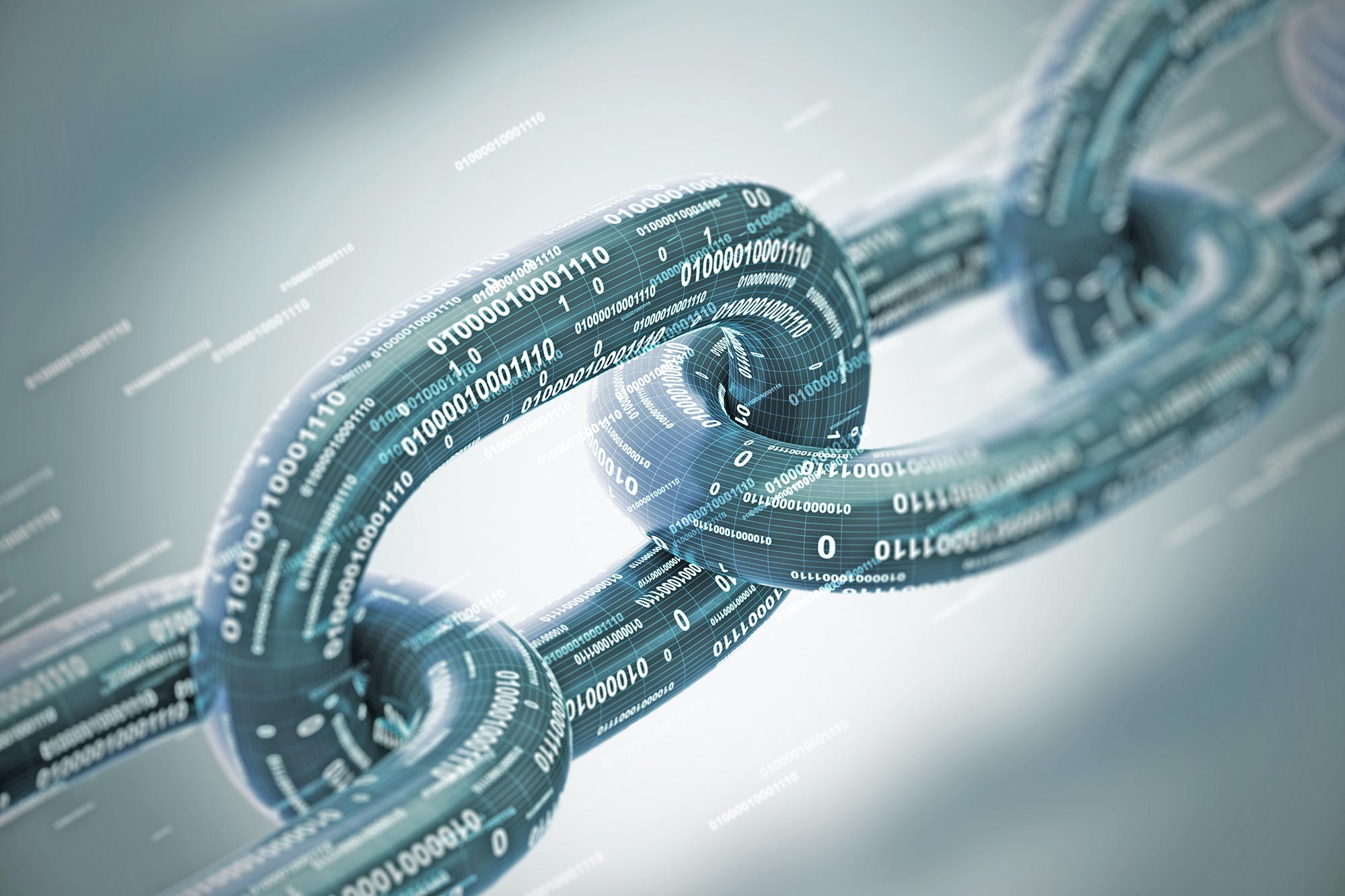Trends / 06-05-2021
Blockchains, in conjunction with smart contracts, thus enable automatic contracts – without any human intervention. Many processors of mostly bureaucratic and formal procedures – especially those that do not deliver any added value – will become superfluous; in fact, many of these middlemen are already superfluous today.
But we still have to pay for them. This is because to a large extent they are routine procedures that are processed on the basis of fixed administrative rules or regulations. As a citizen and applicant, you have to bring everything that is required – the receipts and documents are checked for completeness and authenticity – and signatures and stamps are added. But who could do this better and cheaper than a digital and, above all, tamper-proof tool?
A digital dream: real estate transactions via blockchain
The most popular and currently well-known area of application for such a revolutionary automation are cryptocurrencies. People use them to make joint transactions – which are anchored in a blockchain for ever and ever and can be viewed transparently. But paying for a pizza via Ethereum or a Tesla via Bitcoin is just the teeny-tiny beginning. Every transaction, especially financial, administrative and business transactions, could be concluded in a legally binding manner and radically simplified.
Real estate transactions, with their numerous intermediaries and persons, are particularly obvious in this context: first and foremost notaries and land registry offices. In particular land registry offices offer enormous savings potential. Because, as so often with bureaucratic processes, they only carry out what has long been fixed elsewhere – in this case in the purchase contract. Coded accordingly, a blockchain could take their place and process all this automatically, unalterably and, above all, completely transparently. Anyone with the right to do so would be able to see it. The potential savings would be gigantic and would make an even greater cost factor obsolete for notaries – as far as routine processes are concerned. Where notaries are needed for individual agreements, they can be commissioned – but not by default and if the alternatives are at least as safe. 1.5 % of the purchase price could be saved overall, while at the same time digitizing, simplifying and accelerating the processes. In some German states, people now wait a year for the final entry in the land register. The fact that you have to pay horrendous land transfer taxes on top of that – that is unfortunately a different and additional cost center.
“But how can such important acts of state as a land register entry be given out of hand?” many ask. This is where another advantage and characteristic of the blockchain comes into the game: the processes do not run via a single point of processing, but decentrally, via computers that are independent of each other. The validity of the transactions is checked by a large number of computers and – provided with a time stamp – confirmed. Everything is the same as with paper, stamp ink, official seal and ballpoint pen, but transferred in the 21st century.
The tokenization of real estate ignites the next stage
This utopia – given the state of administration in many countries – would be taken to the extreme by the next quantum leap: the “tokenization of real estate”. What sounds a bit like a remake of the video game “Second Life” means that real estate can be broken down into tiny shares by means of tokens and also traded without intermediaries. Tokens are units, basic building blocks for operations with crypto values and represent an asset or an economic good. Only those who own a (corresponding) token can execute a transaction on the associated blockchain – in our case real estate transactions.
Cyrus de la Rubia, Chief Economist and Head of Research at Hamburg Commercial Bank (HCOB), recently gave an excellent description of this in an article in Immobilienmanager: “The ideal picture of a tokenized property would therefore be that every buyer of these tokens owns a corresponding share of this property. This means that the token holder has a proportional claim to the rental income, he can sell his tokens on the secondary market at any time, but of course he must also pay proportional property tax, pay for repairs, pay insurance premiums and so on. This is all done fully automatically.”
To achieve this, however, the entire economy must be converted to blockchains: above all, the land registers and all payments, including tax payments must run on this basis. Some countries, de la Rubia mentions Sweden, Georgia and even Ghana, are already thinking in this direction. After all, the legal status of a token as a financial instrument is most developed in Germany within the EU. Ideally, tokenization and the use of smart contracts would then continue with all the details of a commercial property: Damage reporting by sensors, placing orders with tradesmen, billing by the insurance company or contracts with tenants.
This is all future talk, but technically feasible and “earthquake-proof”. Blockchains are cryptographically sealed through the work of miners and the entire community. But the spearhead of cryptocurrencies cannot be used for this: Bitcoin can indeed only do currency. With this narrow-gauge offering, together with its absurdly high power consumption, it is already a technical dinosaur and is completely sidelined in practical applications. It is only suitable for gambling and – hopefully soon – party conversations.



